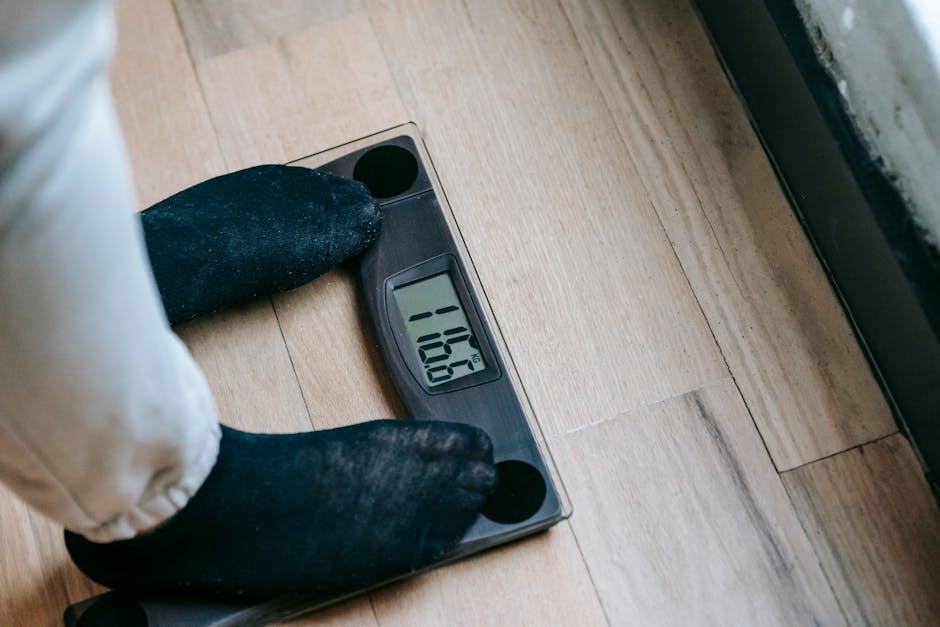Introduction to Effective Weight Loss
When you hear “weight loss,” you might think of strict diets and endless hours at the gym. But losing weight doesn’t have to be a battle. It’s about finding a plan that fits your lifestyle and sticking to it. Effective weight loss strategies focus on small, sustainable changes rather than overnight miracles. It’s about eating a bit healthier, moving your body more, and making smarter choices day by day. No magic pills or extreme workouts required. The key is consistency. Even small steps forward add up over time. So, let’s ditch the all-or-nothing attitude and explore how you can lose weight in a way that works for you.
Understanding Your Lifestyle and Weight Loss Goals
First things first, you can’t pick a one-size-fits-all diet plan from the internet and expect magical results. Everyone’s life is different—what works for your friend might not work for you. To kick start your weight loss, the first step is to truly understand your lifestyle. Are you always on the go, or do you have a more settled routine? Do you eat out often, or are you a home-cooking champion? By answering these questions, you get to the heart of what changes you can realistically make. Next, define your weight loss goals but keep them achievable. Wanting to shed a few pounds is good, but setting unrealistic timelines can lead to disappointment. Think more like losing 1 to 2 pounds per week. This approach ensures you’re not just losing weight, but you’re likely to keep it off long-term. Remember, understanding your lifestyle and setting clear, attainable goals are the stepping stones to a weight loss journey that doesn’t just end with you reaching your target weight but helps you maintain it.
The Role of Diet in Effective Weight Loss
When it comes to shedding pounds, what you eat plays a starring role. Forget about quick fixes or fads. Sustainable weight loss is about balance. Think of it this way: your body’s like a car, and food is the fuel. The quality of fuel you put in determines how well your car runs. To optimize weight loss, focus on whole foods—fruits, vegetables, lean proteins, and whole grains. These foods fill you up but are lower in calories, meaning you can eat more and still be in a calorie deficit. Now, it’s not just about eating less but eating right. Junk food might be tempting, but it’s like putting sugar in your gas tank. Sure, your car will run for a bit, but it’s going to cause damage over time. And remember, hydration is key. Sometimes, thirst masquerades as hunger. Drinking plenty of water can prevent unnecessary snacking. In short, a balanced diet tailored to your preferences and lifestyle is your best bet for shedding weight and keeping it off. So, think whole foods, hydration, and balance. That’s your winning ticket.
Incorporating Physical Activity into Your Routine
Getting moving doesn’t mean you have to spend hours at the gym. It’s about making smarter choices that fit into your daily life. Start by taking small steps. Maybe take the stairs instead of the elevator or park your car farther away from the entrance at work or the store. Aim for a brisk 30-minute walk during your lunch break. If watching TV is your downtime, try doing some light exercises or stretching during the show. The goal here is consistency. Regular physical activity, even in short bursts, adds up over time and can significantly impact your weight loss journey. Remember, the best exercise for weight loss is the one you enjoy and can stick with, so find activities that you look forward to doing. Whether it’s dancing, biking, gardening, or even playing with your kids, if it gets your heart rate up, it counts!
Setting Realistic Weight Loss Targets
Setting realistic weight loss targets is crucial. You’re planning to shed some pounds, right? First step, set a goal that makes sense. Forget about dropping 20 pounds in a month. That’s a setup for disappointment. Think more like 1 to 2 pounds a week. This is doable and keeps you on the safe side of healthy. Remember, slow and steady wins the race. Want to be super smart about it? Aim for losing about 5% to 10% of your body weight over a period of time. So, if you’re tipping the scales at 200 pounds, a goal of 10 to 20 pounds is solid. This approach is not just about seeing smaller numbers on the scale, it also amps up your health big time – reducing risks for diseases like diabetes and heart problems. Keep it realistic, keep it achievable. That’s the golden rule.
Importance of Hydration in Weight Loss
Drinking enough water does more than just quench your thirst—it’s essential for your body to lose weight effectively. Surprisingly, hydration plays a huge role in weight management. It boosts your metabolism, which means your body burns calories faster. Think of water as the oil that keeps the engine running smoothly. When you’re hydrated, your body can focus on burning fat instead of dealing with the downsides of dehydration like feeling tired or confused, which might lead you to think you’re hungry when you’re actually just thirsty. This mistake can make you eat more than you need. Aim for about eight 8-ounce glasses of water a day, but remember, needs can vary based on your size, activity level, and the weather. Start by swapping out one sugary drink for water each day. You’ll cut calories and give your weight loss efforts a helpful nudge without making a massive lifestyle change. It’s a simple step, but it’s effective.
The Impact of Sleep on Weight Management
Getting enough sleep plays a crucial role in managing your weight. When you skimp on sleep, your body goes into stress mode, releasing more of the hormone called cortisol. High levels of cortisol can make you feel hungrier and may lead to craving unhealthy foods. Also, with less sleep, your body’s ability to regulate insulin, the hormone that controls sugar levels, gets messed up. This can make you feel hungry even when you do not need to eat. People who do not get enough sleep often find themselves reaching for snacks late at night, adding extra calories that contribute to weight gain. Aim for at least 7 to 9 hours of sleep each night. It’s not just about the number of hours you sleep, but the quality of sleep too. Making sleep a priority can help you control your hunger, eat less, and maintain a healthier weight. Remember, a well-rested body is better at handling the tasks of weight management.
Stress Management for Sustainable Weight Loss
Managing stress is a game changer when you’re trying to lose weight. Let’s face it, when we’re stressed, we often turn to comfort foods that are usually not the best for our waistlines. But here’s the deal - by getting a handle on stress, you can control those urges to binge on chips or ice cream. Start with simple things like deep breathing exercises, or maybe give meditation a try. Even a short walk can work wonders for clearing your head and reducing stress. Remember, it’s not just about cutting calories or hitting the gym. If you’re all wound up and stressed, your body holds onto weight like it’s a treasure. So, chill out. Managing stress isn’t just good for your mental health; it’s a crucial piece of the weight loss puzzle.
Tracking Progress and Adjusting Strategies
Keeping tabs on your progress and tweaking your approach as needed are key to shedding pounds effectively. Start by jotting down your weight, what you eat, and how much you’re exercising. This isn’t about being hard on yourself; it’s about knowing what works for you and what doesn’t. Think of it as gathering data. As you collect this info, you might notice patterns. Maybe you drop pounds when you hike more often or when you cut back on sugars. If after a few weeks you’re not seeing the change you hoped for, it’s time to mix things up. Swap one kind of exercise for another or try a different healthy eating plan. The trick is to stay flexible. Your body changes, and your weight loss strategy should too. And remember, small steps can lead to big wins over time. Adjusting your game plan isn’t failing—it’s smart. Keep tweaking until you find what clicks for you.
Conclusion: Maintaining Weight Loss and Healthy Habits
Keeping weight off and sticking to healthy habits isn’t a sprint; it’s more like a marathon. It’s about the choices you make every single day. Don’t get hung up on the occasional slip-up or bad day. Progress, not perfection, is what counts. Here’s the deal: stay active, eat smart, and switch things up to keep it interesting. Keep in mind, it’s easier to keep the weight off when you find a routine that fits your lifestyle, rather than trying to stick to strict diets or workout regimes that feel like a chore. Listen to your body, set realistic goals, and celebrate the small victories. Remember, this is about your health and happiness. Keep pushing forward, and don’t be too hard on yourself.


